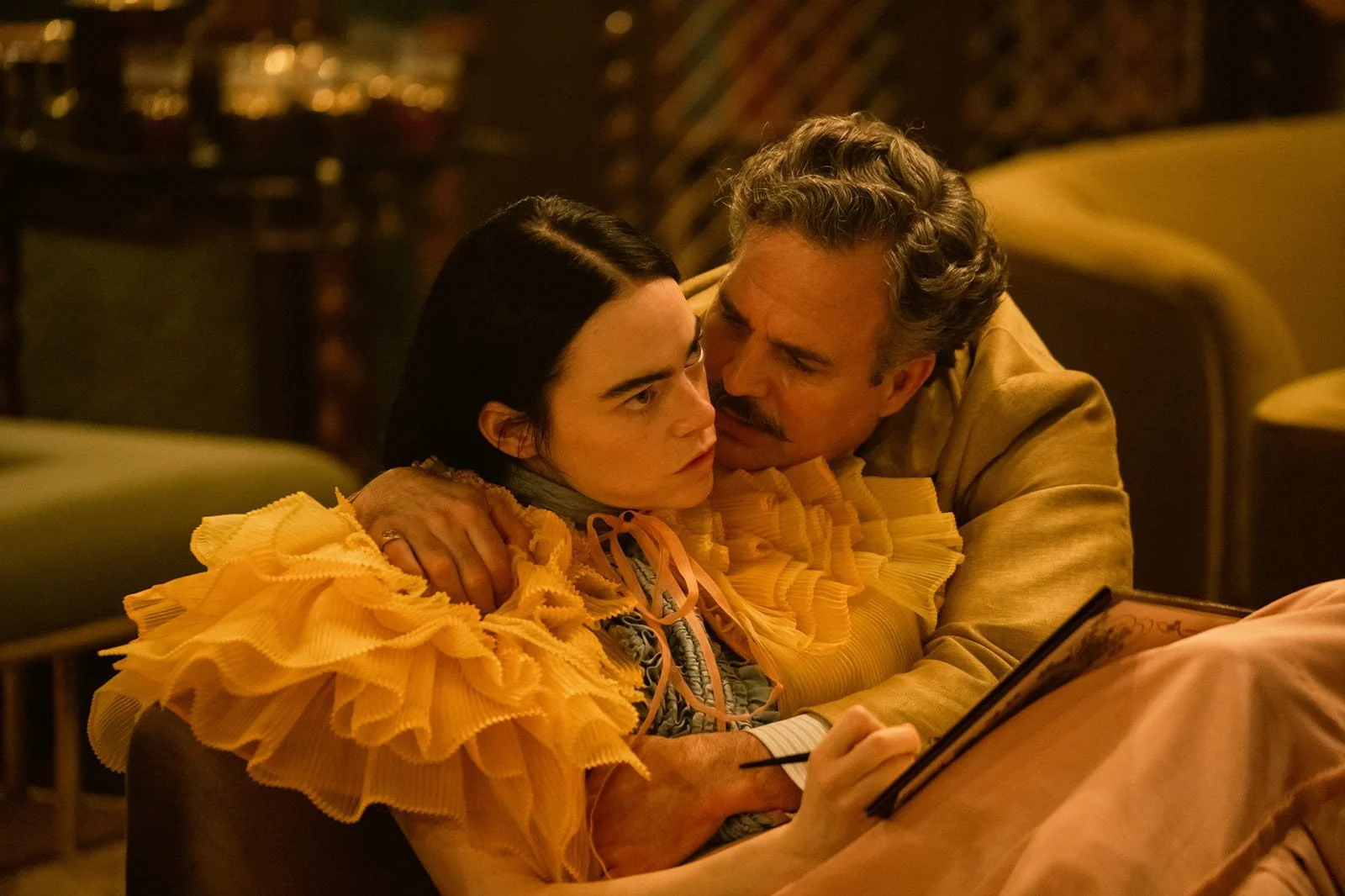Poor Things
Directed by Yorgos Lanthimos
Running time: 2hrs22 | REVIEWED BY CATHERINE BRAY
Emma Stone and Mark Ruffalo in Poor Things
Men and women. That old chestnut. It’s an oldie but goodie, and provides a solid underpinning for this playful adaptation of Alasdair Gray’s novel Poor Things, by the always-intriguing Greek director Yorgos Lanthimos, working from a script by Tony McNamara.
The book — an astute pastiche of 19th-century literature — tells the story of a young lady who appears to have been created by an eccentric scientist. Upon pulling the corpse of a suicidal pregnant woman from a river, the scientist explains that he reanimated her, using the unborn baby’s brain in place of the original. The result is Bella Baxter. Her mind, initially a blank slate, develops at preternatural speed as she interrogates the world in which she finds herself. McNamara and Lanthimos ditch the Scottish location, but retain the time period. Thank goodness for that: while in theory you could rework this story in a contemporary setting, the psychological weight of the era matters here.
In English literature, it was in the 19th century that the novel reached its fullest expression as an unsurpassed medium for conveying a person’s internal psychology, with such titles as Middlemarch, Wuthering Heights, Sense and Sensibility and (perhaps most relevantly here) Frankenstein — all by female authors, cuing the surprising discovery that women had the ability to think, in remarkably similar ways to men. Indeed, some commentators conjectured, their books must in fact have been written by men: a far more plausible explanation than the theory that women had proper minds of their own and could convey thought subjectively. And yet it was true: women had started thinking. The object had woken up, and was regarding the subject as an object in its own right. A monster had been created, and it was alive.
This 19th-century culture shock is very much present and correct in Lanthimos’ vision for Poor Things. Emma Stone’s Bella analyses, makes decisions, has agency, imagination, desire, willpower, and, above all, perspective. The men with whom she comes into varying degrees of close contact are variously baffled, terrified, repulsed, alarmed and turned on by all this. Some believe themselves deeply attracted to her capacity for independent thought and action, before cottoning on to the actual implications of that agency.
Bella’s mind develops so quickly, she doesn’t have time to be cowed by convention or gaslit into accepting the shackles on her behaviour that contemporary moral values would seek to impose on her. Subjugation is a process that takes time to have its most insidious effect: internalising the will of the oppressor. Bella grows up so fast, she remains as healthily selfish as a child, while her ability to think for herself becomes more sophisticated than most of the people she encounters. This is as fascinating a character study as you’re likely to watch all year, and while it might sound like a gothic science-fiction stuffed with grotesques (and it is that too), it has at least as much to say about real people as most films celebrated for more self-evident forms of positive representation.
POOR THINGS (2023) Written by Tony McNamara | Shot by Robbie Ryan | Edited by Yorgos Mavropsaridis
